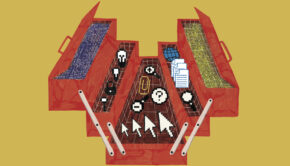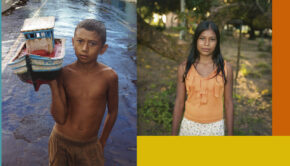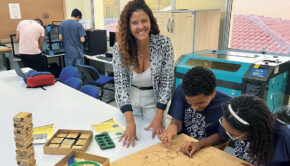Doctoral study set to investigate the operation and business models of paper mills
November 18, 2025 3:55 pmDoctoral study set to investigate the operation and business models of paper mills
Doctoral study set to investigate the operation and business models of paper mills
English universities respond to new regulations on harassment and sexual violence against students

New office tasked with preventing conflicts of interest and supporting entrepreneurial teachers

Attacks against the National Education and Research System increased by 56% between 2023 and 2024

Researchers use artificial intelligence in scientific work

São Paulo native from UnB who helped revise concepts about sexual selection in the tropics and cooperative breeding has dedicated herself to another passion since last year: painting

Brazil’s national health system (SUS) could treat diseases more efficiently by making use of databases on ancestry and the wide variety embedded in Brazilian DNA

New DNA sequencing of 2,723 people reveals greater Indigenous and African ancestry and highlights violence that marked the formation of the Brazilian population
More than half of all students at Brazilian public universities show signs of depression and anxiety
Solar Probe records highest ever observed concentration of rare isotope helium-3 in the Sun
Red meat is incompatible with a sustainable diet due to high environmental impact
Researchers develop synthetic metamaterial that combines seemingly incompatible properties
Volatile organic compounds present in the aroma of roses trigger emotional response
Scientists create new financial transaction technology that promises to be faster and more efficient
Ethiopian holy water brings cholera to Germany and the UK
Despite having been domesticated, dogs and cats maintain their predatory instinct and pose risks to wildlife
Fungal diversity is declining, with many species threatened with extinction
Archaeologists find Mayan altar from 300 AD clearly influenced by Mexican city
Severe droughts have drastically reduced amphibian populations
Nheengatu, language of Tupi origin, still spoken in the Amazon
Space mission captures images of 380,000 galaxies of varying shapes and sizes
Compounds in earwax may help detect cancer in its early stages
Letter from the editor

Photo shows newly described insect species with a lifespan shorter than 24 hours

Educator Caroline Jango investigates ways to tackle racism in schools

Doctor from São Paulo brought the concept of health centers from the USA and promoted good nutrition as a disease prevention strategy
Feminist theorist Heloisa Teixeira helped promote marginal poetry and founded the University of Quebradas

Productions designed with this in mind emerged in Brazil in the 1990s and seek a wide audience

Translated into several languages, the author's novels have earned recognition from awards and literary circuits in countries such as Italy and Portugal

Period of redemocratization has been marked by social advances and economic plans